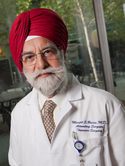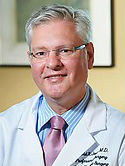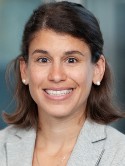Patterns and risk of recurrence in patients with esophageal cancer with a pathologic complete response after chemoradiotherapy followed by surgery Journal Article
| Authors: | Barbetta, A.; Sihag, S.; Nobel, T.; Hsu, M.; Tan, K. S.; Bains, M.; Jones, D. R.; Molena, D. |
| Article Title: | Patterns and risk of recurrence in patients with esophageal cancer with a pathologic complete response after chemoradiotherapy followed by surgery |
| Abstract: | Objectives: A pathologic complete response in patients with locally advanced esophageal cancer after chemoradiotherapy and surgery is associated with improved overall and disease-free survival. Nevertheless, approximately one third of patients with a pathologic complete response still have a recurrence. The aim of this study was to evaluate risk factors and patterns of recurrence in patients with locally advanced esophageal cancer who achieved a pathologic complete response after chemoradiotherapy and surgery. Methods: We performed a retrospective review of a single-institution database of 233 patients with stage II and III esophageal cancer with a pathologic complete response after chemoradiotherapy and surgery between 1997 and 2017. A multivariable competing risk-regression model was used to identify predictors of recurrence. Results: A total of 61 patients exhibited recurrence in this cohort, 43 with adenocarcinoma and 18 with squamous cell carcinoma. Five-year cumulative incidence of recurrence did not vary by histology. Univariable analysis revealed that poor tumor differentiation (hazard ratio, 2.28; P =.022) and advanced clinical stage (hazard ratio, 1.89; P =.042) are predictors of recurrence in the esophageal adenocarcinoma subgroup, whereas poor tumor differentiation remained the only independent predictor on multivariable analysis in the entire cohort (hazard ratio, 2.28; P =.009). Patients with esophageal adenocarcinoma had a higher incidence of distant recurrences, and patients with esophageal squamous cell carcinoma demonstrated a higher incidence of loco-regional recurrence (P =.039). Conclusions: Poor tumor differentiation is an independent risk factor for recurrence in patients with esophageal cancer with a pathologic complete response. Although there is no difference in the cumulative incidence of recurrence between esophageal adenocarcinoma and esophageal squamous cell carcinoma, patterns of recurrence appear to differ. Thus, treatment and surveillance strategies may be tailored appropriately. © 2018 The American Association for Thoracic Surgery |
| Keywords: | survival; recurrence; esophageal cancer; pathologic complete response; neoadjuvant chemoradiotherapy plus surgery |
| Journal Title: | Journal of Thoracic and Cardiovascular Surgery |
| Volume: | 157 |
| Issue: | 3 |
| ISSN: | 0022-5223 |
| Publisher: | Mosby Elsevier |
| Date Published: | 2019-03-01 |
| Start Page: | 1249 |
| End Page: | 1259.e5 |
| Language: | English |
| DOI: | 10.1016/j.jtcvs.2018.09.136 |
| PROVIDER: | scopus |
| PUBMED: | 30655068 |
| PMCID: | PMC6534488 |
| DOI/URL: | |
| Notes: | Article -- Export Date: 1 March 2019 -- Source: Scopus |
Altmetric
Citation Impact
BMJ Impact Analytics
Related MSK Work











